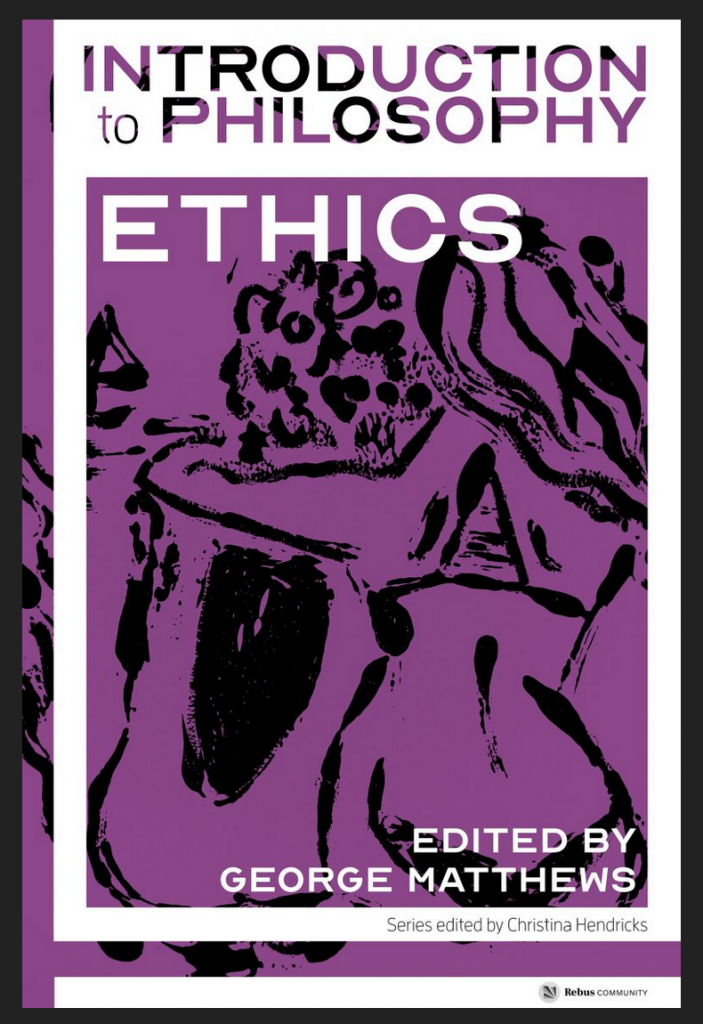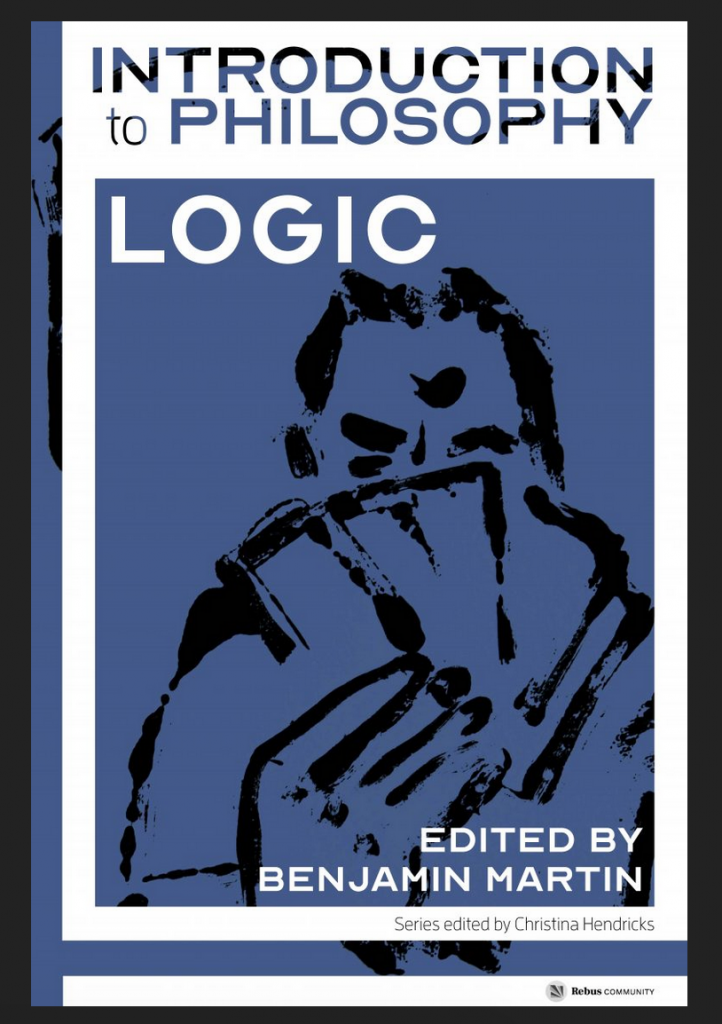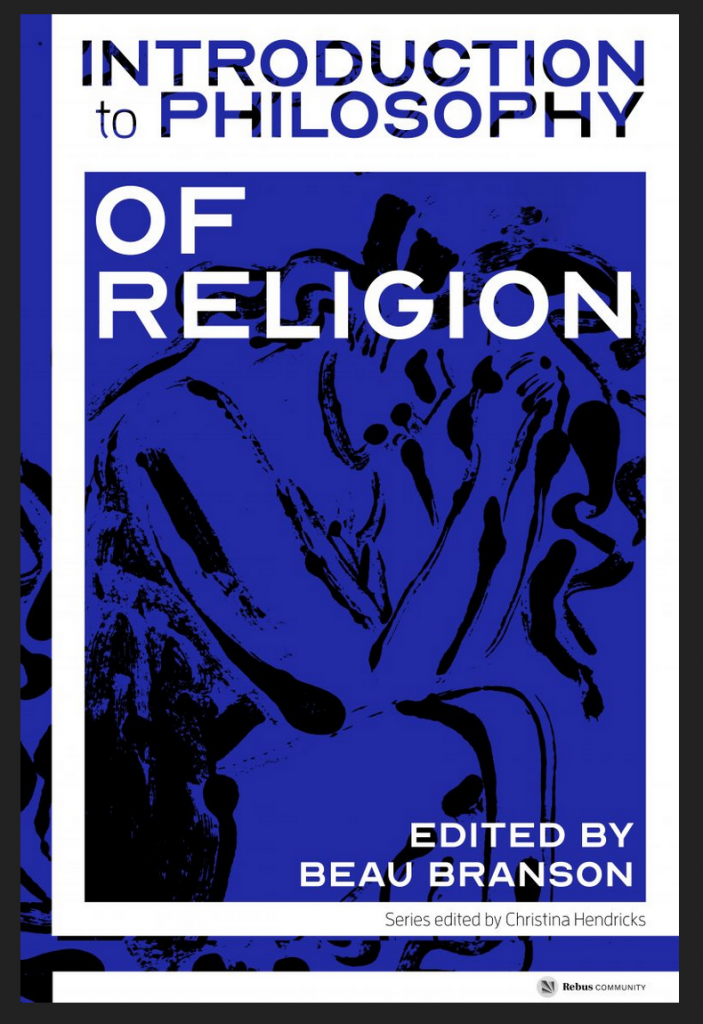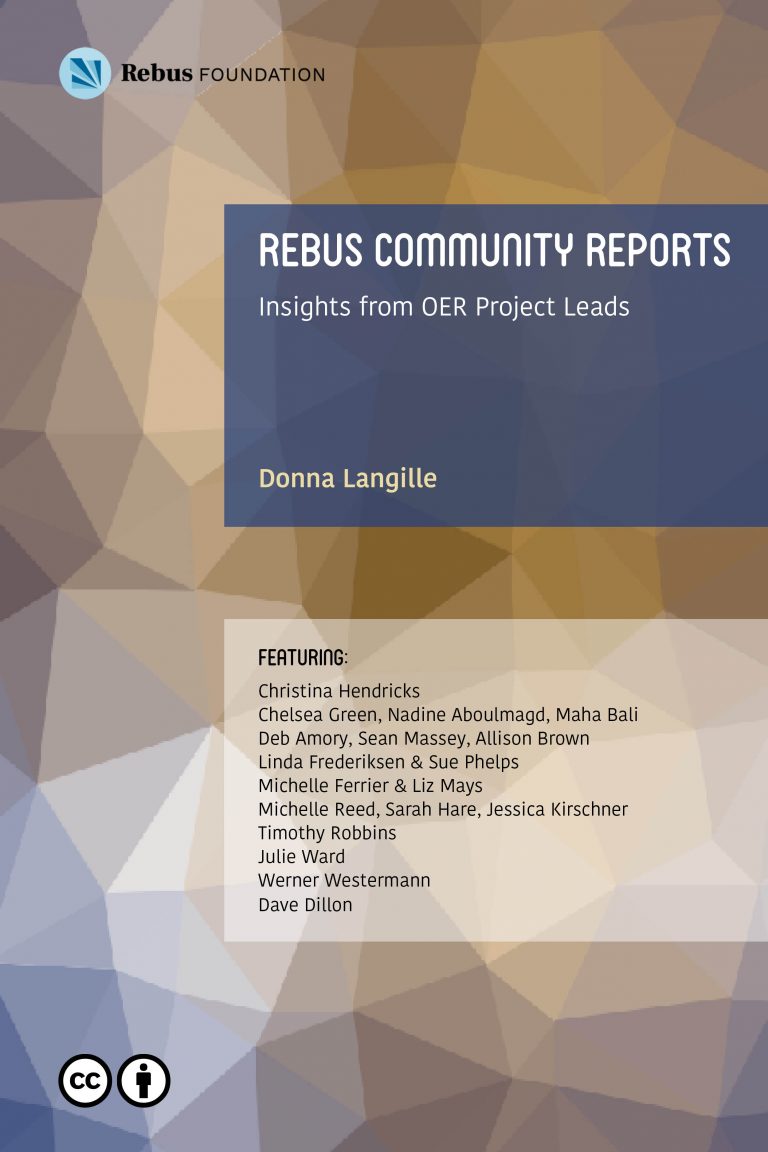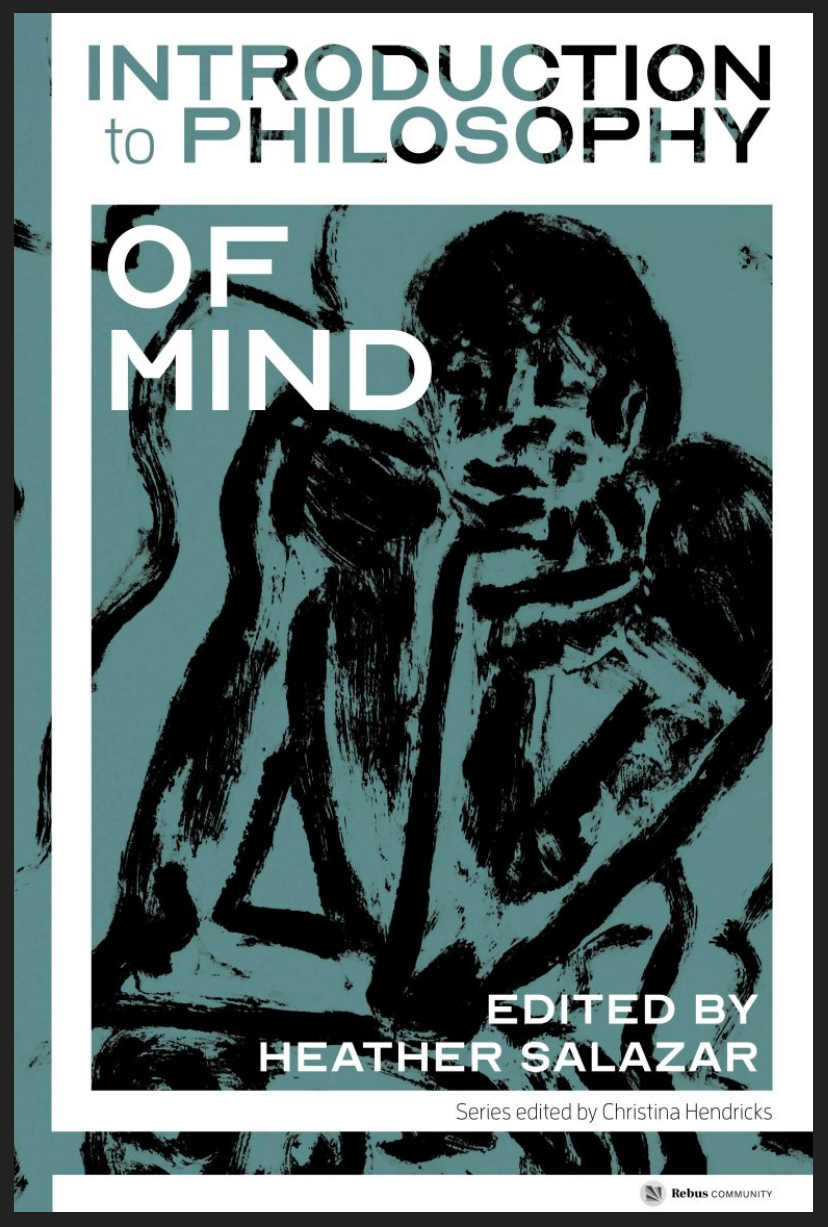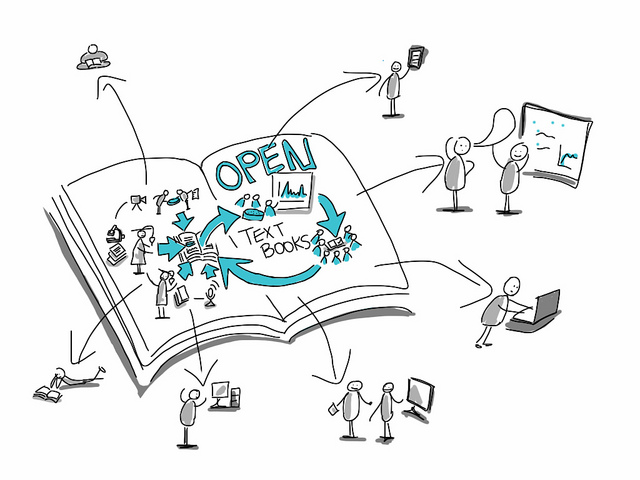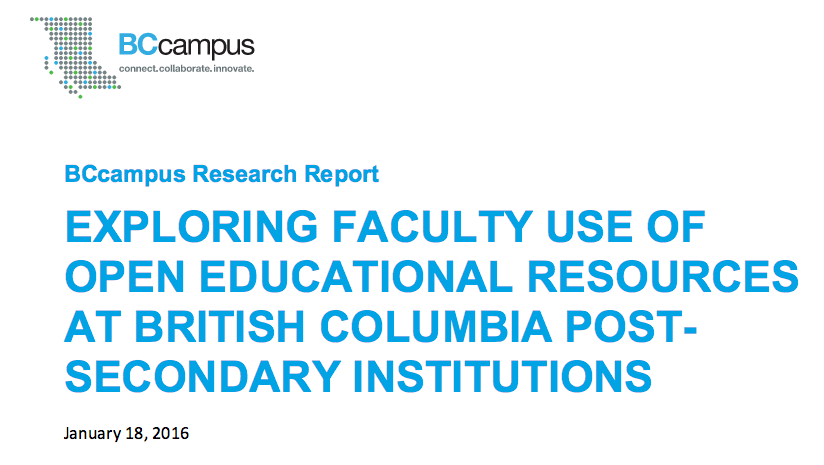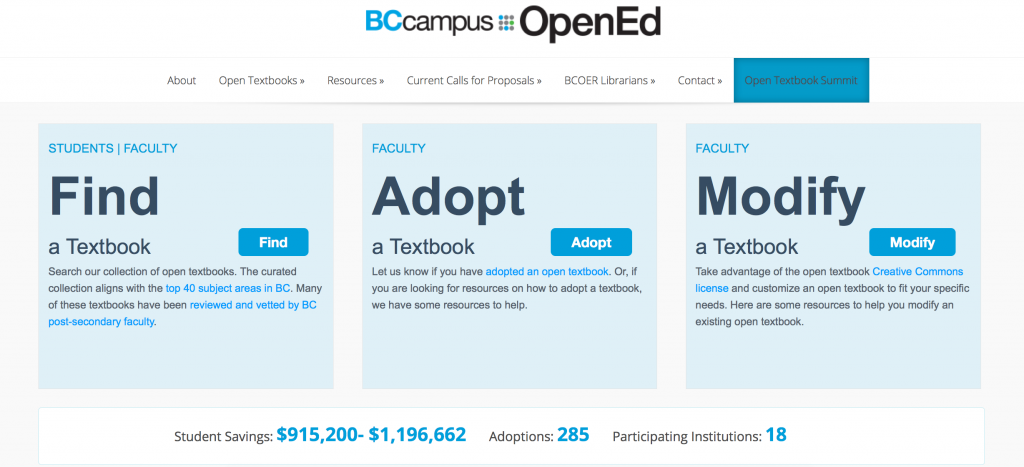
For the past year I have served as a Faculty Fellow with the BCcampus Open Textbook program. The provincial government of British Columbia provided funding for BCcampus to find, adapt, review, and develop open textbooks for the 40 highest enrolled subjects in BC postsecondary educational, and then providing more funding for open textbooks for skills and trades. You can see the amazing success of the program so far in these stats.
Last year BCcampus started a program of having “Faculty Fellows” who would do three things:
- increase awareness of and promote Open Textbooks on their campuses and beyond
- engage in research on Open Textbooks and other OER
- provide feedback to BCcampus on their Open Textbooks program
I, along with Rajiv Jhangiani from Kwantlen Polytechni University and Jessie Key from Vancouver Island University, were the first three BCcampus Open Textbook Faculty Fellows (you can see a post about this from BCcampus here).
Now that we are coming to the end of our terms, we have been asked to write a report on the time spent as Faculty Fellows. I thought I’d make that report public here on my blog. I am organizing it according to the questions we were asked to address (not quite in the same order they were asked, but they’re all here).
Coming into the Faculty Fellows (FF) program, what were your expectations about the FF program? How did you envision the year unfolding? Did the FF program meet those expectations and match the vision you had of the year? Why or why not?
I must admit that I wasn’t sure exactly what to expect coming into the program. I felt a little under-prepared, as my two colleagues Rajiv and Jessie had both done much more work with open textbooks than I had, when we started. I had never been involved in adapting an open textbook like they both had, and had never used one either. I felt somewhat worried that I would be called upon to be an advocate for open textbooks without having enough knowledge. Those fears were quickly allayed as I began to learn about the BCcampus Open Textbook program, how it worked, what was involved in adopting and adapting an open textbook, and as I began to read research into open textbooks (kindly provided by Clint Lalonde and Amanda Coolidge from BCcampus). I was also happy to hear that I could review slides from presentations others had already given on open textbooks, to help me prepare for any presentations I might give.
I was also concerned about doing research on open textbooks, in the sense that I not only didn’t know a lot about open textbooks but I am also not well versed in empirical research methods (having been trained in philosophy, where we don’t learn much if anything at all about social science research methods). Fortunately, there was a research project with the OER Research Hub that was already begun but still in early enough stages that those of us not already involved (Jessie and I) could contribute to its design.
Is there something you were hoping to do more of with the FF program that you were not able to do? Why?
There are two things that didn’t quite meet my original vision of the year.
1. I had hoped to do more in the way of spreading awareness and advocacy on my campus. I did several presentations on open education and OER at UBC during my year as a Faculty Fellow, and in each one I managed to talk about OT (open textbooks) even where this wasn’t the focus. I also spoke to two student groups about OT. One thing that I wanted to try to do was to contact departments for which there are a number of good open textbooks and make a short presentation at department meetings about the availability of these textbooks. I honestly just ran out of time to do this. I only briefly spoke to my own department, to ask for a volunteer to review an OT on modern philosophy, and to point out that OT in philosophy exist. There wasn’t much (in fact any) interest expressed, but partially the issue there is that there aren’t very many open textbooks in philosophy (and the ones that exist are fairly specialized: logic and modern philosophy; if there were a good one on Introduction to Philosophy, things might be different).
2. I also didn’t do as much research on open textbooks or OER as I would have liked. Partly that was up to me; if I had come up with a research project separate from the one we were all working on, I expect I would have been able to get help in designing and implementing it from people at BCcampus and from Jessie and Rajiv. But my lack of knowledge about open textbooks at the beginning of the program, plus lack of connections to people using them, meant I wasn’t sure quite where to start in thinking about researching them. Now, at the end of the year, I feel much more ready to begin my own research project(s). This is in large part due to the chance to participate in the research project on faculty attitudes towards OER and Open Textbooks that all of us were a part of. I learned a great deal through that process.
What resources did you need to do your FF that you did not have?
I think to do the research portion of the role I would have needed more time and more training in just what sort of research would be good to do and how to do it. As there was a research project already in progress, I just helped with that one; but I didn’t have enough knowledge to have been able to run my own research project well, I think (as noted above). However, again, if I had really pushed myself to run my own project I expect I would have found help from BCcampus and my colleagues in the FF program, who would have been able to fill in my knowledge gaps or help with data analysis (as that is something I feel particularly unprepared to engage in).
Please provide a synopsis of your activities in 3 areas: Advocacy, Research, Support.
Advocacy
- Rajiv Jhangiani and I spoke at the 2015 meeting of the Society for Teaching and Learning in Higher Education (STLHE), on “Enhancing Pedagogy with Open Textbooks and Other OER,” Vancouver, BC, June 2015. In this workshop we spoke about benefits of OT and OER beyond simply cost savings, and asked participants to brainstorm other benefits as well as possible drawbacks and how to address them.
- I spoke about OER and open textbooks at several faculty professional development events at UBC:
- I participated in a debate about the value of MOOCs for higher education during Open Access Week at UBC, Oct. 29, 2014. During my presentation I also spoke briefly about open textbooks. Slides from this presentation, and a description of the event, can be found here: https://blogs.ubc.ca/chendricks/2014/11/03/the-open-in-moocs/
- I co-presented with others from UBC on “Increasing Student Engagement with Open Educational Resources,” once in May 2015 and once in August 2015. The two presentations were actually fairly different, because they were with different groups of people, but both focused on the value of OER and open textbooks beyond simply saving students money. The slides for one of these presentations can be found here: https://blogs.ubc.ca/chendricks/2015/06/13/engaging-students-with-oer/
- I spoke to two student groups at UBC about open textbooks: the Arts Undergraduate Society and the Science Undergraduate Society (both in Spring 2015). I talked about what open textbooks are and told them about the BCcampus Open Textbook program. I also asked for suggestions on how to get the word out more widely about open textbooks. Slides for both of these presentations can be found here: http://www.slideshare.net/clhendricksbc/open-textbooks-presentation-at-ubc
- I connected with student leaders at UBC and at Simon Fraser University, which, over the course of the year, has led to some very fruitful activities by students at UBC. When I first contacted a student leader in the Alma Mater Society at UBC, though he was very interested, he couldn’t get the rest of the AMS terribly interested in open textbooks and OER. But after their subsequent election, there were more people interested, and that initial meeting plus subsequent meetings have led to:
- UBC and SFU students working together on a #textbookbrokeBC campaign on social media (some information about that campaign can be found here: http://www.ams.ubc.ca/leadership/executive/key-projects/open-educational-resources-oers/)
- UBC students working with our Centre for Teaching, Learning and Technology to get discussions of OER and OT into more professional development workshops for faculty.
- UBC students pushing to get mention of the creation of OER and OT into a document that explains various examples of “educational leadership” that teaching-focused faculty at UBC can engage in to help them achieve tenure and promotion.
- UBC students working with me to develop a “sprint” to create an OER resource on environmental ethics, that will have case studies that cross disciplinary boundaries. We are in the process right now of putting together a grant proposal to try to fund this project. We envision that the sprint will provide a beginning point for the resource, but that students in various classes at UBC will work across disciplinary boundaries to continue to add to it.
Research
I worked with Jessie, Rajiv, Clint Lalonde and Amanda Coolidge (BCcampus) and Beck Pitt (OER Research Hub) on a survey of faculty in BC and beyond, asking about their attitudes towards, use, adaptation and creation of OER and open textbooks. We had One thing that is particularly valuable about this survey, I think, is that we were able to break down the results according to: amount of teaching experience, full-time vs. part-time employment status, what sort of institution the faculty teach at (research, teaching-focused, community college), and more. We had data from 78 participants from 17 institutions in BC in the survey.
- Jessie Key, Rajiv Jhangiani, Beck Pitt and I presented some of our findings on this survey at the BCcampus Open Textbook Summit in May, 2015. The slides from this presentation can be found here: http://www.slideshare.net/BCcampus/faculty-attitudes-towards-and-experiences-with-oer-open-textbooks
- Rajiv Jhangiani and I will also present on this research at the Open Education Conference in Vancouver in November, 2015.
- Jessie, Rajiv, Beck, Amanda Coolidge (BCcampus) and I are also currently writing a white paper based on the results of this survey.
Support
- We faculty fellows met monthly with BCcampus to talk about our activities in advocacy and research, and also provided feedback to BCcampus on the open textbook program during those meetings whenever advice was solicited.
Other activities related to my role as a faculty fellow
- I engaged in an extensive review of an open textbook under development, Ethics in Law Enforcement, by Steve McCartney and Rick Parent. As the book was being written, I provided a great deal of feedback on draft chapters.
- Jessie Key and I spoke about our experiences with open textbooks at the BCcampus Open Textbook Summit in May, 2015. I spoke about reviewing an open textbook (Ethics in Law Enforcement), and Jessie spoke about adapting an open textbook in chemistry.
How much time did you devote to FF? Did we ask too much, not enough of your time? Was the amount of money provided adequate compensation for your work?
It’s difficult for me to quantify the amount of time I spent on the FF program. It came in fits and starts, with some periods being very busy with the research or preparing presentations on the research, or with the advocacy activities, and some periods during which things were much less hectic. I felt very satisfied with the amount of time that was asked of me–not too much, not too little. I appreciated the monthly meetings because they allowed us to keep up with each others’ activities (and some of those activities then provided new ideas for me on what could be done on my campus). Meetings once a month was just right, I thought. I also feel the compensation provided was definitely adequate for the amount of time spent. At no time did I feel I was doing more than I was being compensated for.
What kind of orientation do you think is needed for future incoming FF?
Meeting in person at the beginning of the year was very, very important. Since most of the rest of the year we met on Skype, it was crucial to feel like you had already gotten to know others a bit before working together in this more “distanced” fashion. So the first meeting being an face-to-face orientation was very important.
I particularly appreciated learning about the Open Textbook Program generally, how to adopt and adapt textbooks, and about resources for those who want to look into the literature on OT and OER. Knowing that there were slide decks already available for consulting before one creates one’s own for advocacy purposes was also really useful (maybe having those available in a shared cloud folder, for example, would be good).
I suppose the only thing I would add that I didn’t feel I had at the orientation was help in designing a research project if one doesn’t already have one in mind. I’m not sure how this would work, but if at least there was someone who would be the designated person to talk to if one has questions about how to design and carry out a research project, that would help. Or maybe some sample ideas for research projects to get people thinking. Now, honestly, I can’t remember all that happened at our orientation, so there may have been more of this sort of thing than I remember! But it’s the one thing I felt I wasn’t fully prepared for.
What advice do you have for future FF?
One thing that comes to mind is to take advantage of all the help and support provided by BCcampus and your fellow faculty fellows as much as you can. It’s such a great opportunity to learn and collaborate closely with a fantastic group of people. Don’t be afraid to ask for help or advice, as in my experience, it was willingly and enthusiastically given.
Also, I think it would be good for each fellow to be clear for themselves about their goals for the year. I had a vague sense of goals rather than setting out clear goals for myself to begin with. Of course, those can change as time goes on, but if you start with a good set of reasonable, achievable goals you might be more likely to keep yourself on task for all of them. I might have done more research on my own if I had done this!
Has the FF program been a worthwhile program for you to participate in? Why or why not?
It has definitely been a worthwhile program to participate in. Besides the fact that my knowledge of how to do research on OER and OT (open textbooks) has expanded greatly, I have been able to do many other very valuable things. One is to connect with more people working on OER and OT through my work as a faculty fellow. My connections with Jessie, Rajiv, Beck Pitt at the OER Research Hub, and Clint Lalonde, Amanda Coolidge and Laurie Aesoph at BCcampus been invaluable for learning about OER, OT, and research on these as well as for the possibility of collaborations I would not otherwise have had. In addition, through them and through my role as a faculty fellow and my participation in events such as the Open Textbook Summit, I have meet numerous other people involved with open education, OER and OT. These connections are continuing to prove fruitful for my own learning and for, hopefully, future collaborations.
I have also had the privilege to help with a new movement on my campus, led by students, for OT and OER advocacy. I am particularly excited about that; of all the advocacy work I’ve done through the FF program, I feel like the work with students has had the most rewards. They have had the energy and the drive to push for things I had only thought of but hadn’t followed through on by myself. Their excitement and their perseverance is contagious and inspiring.
Honestly, I have been so inspired by my colleagues in the FF program, by my colleagues at BCcampus, by the students I have worked with, and the others I have met through my FF role, that I can’t imagine the work I have done as an FF this year really ending. I have become one of the main leaders on my campus in regards to open education, OER, and open textbooks, and my leadership work in those areas will most certainly continue. Being a BCcampus Faculty Fellow has been (and will continue to be) an invaluable experience.
